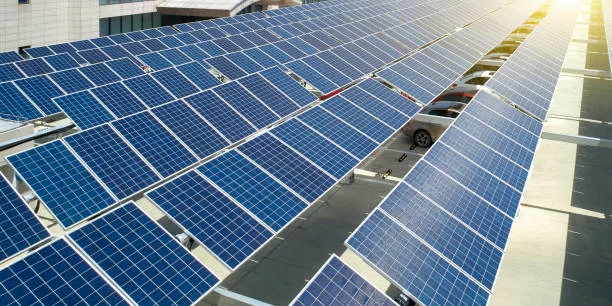Hyundai Motor Group is often unsung when it comes to cleantech innovations, yet its latest ventures are setting the stage for a more sustainable future within the automotive industry. Recent announcements have highlighted the company’s commitment to renewable energy and smart transportation solutions.
Embracing Solar Energy Across US Operations
In a significant leap towards sustainability, Hyundai has embraced solar energy to power its manufacturing processes. The company has entered into a robust 15-year power purchase agreement with Matrix Renewables, a renewable energy company based in Madrid, Spain, to source solar energy for all Hyundai US factories. The source of this energy will be the Stillhouse Solar Project in Texas, a 147 MW solar power plant expected to significantly reduce the company’s carbon footprint.
Hyundai isn’t stopping there—later this year, Hyundai plans to continue investing in renewable energy for their American facilities and intends to replicate these initiatives at their international factories. The Stillhouse Solar Project alone is predicted to generate approximately 378 GWh of electricity annually, potentially cutting Hyundai’s carbon emissions by around 140,000 tons each year. This initiative is a testament to Hyundai’s quest for sustainable manufacturing, ranging from vehicle assembly at the HMGMA electric vehicle (EV) dedicated factory to the production of parts and steel plates.
Partnering with the Dutch Government for Enhanced Mobility
Moving beyond renewable energy, Hyundai recently revealed a collaboration with the Dutch government, aiming to integrate smart technology into transportation. This involves connecting Hyundai and Kia vehicles to the Netherlands’ intelligent infrastructure network in order to receive vital traffic and safety information.
So what’s the real-world application? Hyundai vehicles will be able to get real-time updates on traffic incidents, as well as alerts about oncoming emergency vehicles, enabling quicker and safer yielding. This initiative, while not groundbreaking, stands to improve vehicle safety and ease traffic congestion significantly.
This partnership aligns with Hyundai’s broader strategy of transitioning into software-defined mobility, prioritizing user-centered experiences powered by artificial intelligence (AI). While AI is often associated with lofty futuristic projects, Hyundai’s application is grounded in practical solutions that promise to enhance safety and redefine the smart mobility experience.
Hyundai’s role in cleantech and smart transportation solutions may sometimes go unnoticed, but its recent undertakings in solar energy and intelligent traffic systems signify a pivotal shift towards a greener, smarter automotive future, demonstrating practical applications of technology in improving lives and protecting the planet.

























